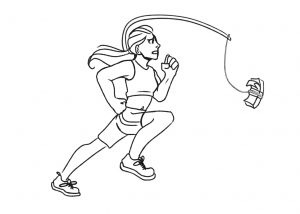College athletes should not receive payment
December 26, 2018
It’s been the topic of ACT writing prompts, debated in newspapers and talk shows, and a frequent topic of conversation around football playoffs and March Madness season: should college athletes be paid?
College athletes are students that have been recruited or walked-on to college sports teams. They spend their time in the classroom, at the weight room, or on the field; balancing the demands of college with their busy sports schedules. All colleges are broken down into National Collegiate Athletic Association (NCAA) sections, division I, II, and III. Division I schools are typically larger, both student body and budget wise, and they also give out the most athletic scholarships. The further down the division, the less budget and scholarships the colleges have to work with. Division III schools give out no scholarships, but they are the largest of the NCAA divisions. According to CBS, 69% of the American public is against paying student-athletes additional funds on top of their scholarships benefits; and for good reasons.
A majority of college athletes already receive scholarships which cover the cost of their education. While many student-athletes will not receive full scholarships, they can reap certain benefits given to student-athletes that help cover the costs of housing, dining, and other expenses like textbooks. Because of these scholarships and other benefits, college athletes have far fewer student loans and other expenses to pay off than regular students. According to the U.S News, a typical athletic scholarship is around $10,400. Between Division I and II schools, nearly 150,000 scholarships are given out each year, costing the NCAA $2.9 billion.
Paying student-athletes would become difficult for colleges in the long run. Paying student-athletes brings into question how much student-athletes would get paid and how would the finances be distributed. Not to mention, smaller sports teams might be cut from the college programs because of their displaced finances money. This would take away opportunities from other athletes, who worked just as hard to earn their right to play at the college level. Joel Mendelson, a writer for the University Wire, noted that, “It’s unfair and wrong to pay football and men’s basketball players because they participate in a sport that generates millions of dollars in revenue, but not pay the thousands upon thousands of student-athletes competing for their schools in other sports.”
Paying student-athletes would also affect Title IX, as it brings into question whether female athletes be paid just as much as the male athletes. It remains a fact that the biggest revenue generating sports in the NCAA are men’s football and basketball. This is because these sports generate the most media coverage and “airtime” compared to other college sports. Unfortunately, many female sports team are stuck in a vicious cycle of not generating enough media coverage, which in turn leads to fewer fans. Take, for instance, the 2013 Gopher Women’s Hockey team, who ended their season with sixty-two game winning streak which included a national championship and stretched for more than two and a half seasons. Only after the streak ended did they receive a front page article in the newspaper. Since then, they have gone on to win two more national championships, neither of which were televised, not even on local channels. Mendelson again questioned the idea of the equitably of paying male versus female athletes, questioning that, “Is it right for a star football player to receive a sizable salary because football makes buckets of money while a women’s lacrosse player with a 3.9 GPA gets minimum wage?”
Student-athletes should reap the benefits that they already receive from their respective universities, and enjoy their college experiences while they have them. Student-athletes are not professional athletes, much to the discretion of fans across the country, and they should not be treated as so. Colleges and the NCAA are not and should not be responsible for equitably doling out finances to schools, as they have already proven that they struggle when it comes to providing equal opportunities for student-athletes.



